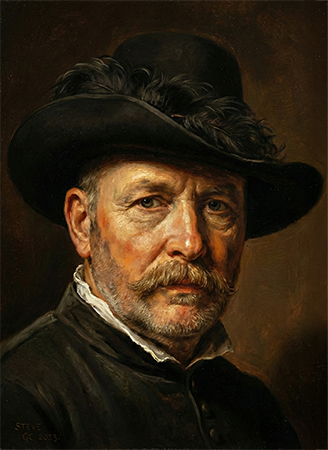About This Website

I hope what I have written (and continue to write and rewrite) might be of benefit to mature learners and philosophically disposed scientists like myself. Although philosophical jargon is used in places on this website, it would be arrogant to believe that I could contribute to the thinking of professional philosophers or those with a very deep and extensive interest in epistemology, pragmatism, or the philosophy of science, so this site is not aimed at them.
For a General Readership ?
As a fan of the online magazine Aeon, and the BBC Radio 4 programme and podcast ‘In Our Time’, which deals with the ‘history of ideas’, I have attempted to write for fellow readers and listeners and so have aimed at people of a reflective disposition. Nevertheless, I have chosen not to delve into the world of ancient Greek philosophy and religiously inspired thought, although I acknowledge that much of our intellectual culture in the West has its very early origins there.
As some readers might not be familiar with vocabulary and ideas used here I have provided links to commonly used free sources of information such as Wikipedia, the Internet Encyclopaedia of Philosophy, the Stanford Encyclopaedia of Philosophy (listed in increasing order of impenetrability). Wikipedia is used frequently because the links to relevant articles are likely to work in the long term and because the content can be publicly challenged. [See the editors’ discussion page about Attribution/Role of truth in Wikipedia articles for example.]
I have been influenced by many long online videos and audio recordings of academic philosophers, particularly from the Philosophy Overdose Chanel of YouTube, which I highly recommend if you have the time and inclination to listen to long videos. Dutch philosopher, Victor Gijsbers’s philosophy education chanel contains extensive playlists of his talks on epistemology and some classic philosophical books and professionally written papers. The Carneades.org philosophy education channel has hundreds of useful very short videos about philosophical concepts. (For the author’s take on these videos see https://www.carneades.org/about-us/.) I have created the Putnam Speaking and Rorty Speaking playlists on Youtube.
There are three philosophy podcasts I particularly enjoy; Philosophy Bites, The Philosopher’s Zone, and the In Our Time Philosophy Podcasts. There are almost too many good philosophy books to mention. However, if you want to learn philosophy without attending classes Simon Blackburn’s ‘A Dictionary of Philosophy‘ might prove useful. For more advanced reading, the websites of professional academic philosophers, or sites like Philpapers or ResearchGate can be a great source of free professionally written publications. JD Norton is a shining example of a philosopher making his material publically available, including free books relevant to this site.
The Use of AI
One of the many way I presently use the LLM’s is to ask questions concerning topics in philosophy that I am unfamiliar with or about particular stances that I have adopted in solitary reflection. One long Google Gemini, report might help me critique one sentence or partial sentence I have drafted. In December 2025 I switched to Google Gemini ‘Deep Research’ because it uses Google Search to enhance output beyond what is possible with initial training and post training and also provides inline citations. Google Deep Research is an example of Retrieval Augmented Generation (RAG) that should, in principle, raise the probability of useful answers being generated. The ‘artistic’ illustrations were created by repeatedly prompting AI systems. The images were then edited with AI based tools or classical Photoshop editing.

A Personal Note
An explanatory autobiographical note about how it is that I come to write on these topics can be found here >
Steve Campbell, Glasgow, Scotland 2025
(Version 6)
(This web site was formerly at another URL until a technical glitch happened and all was temporarily lost!)